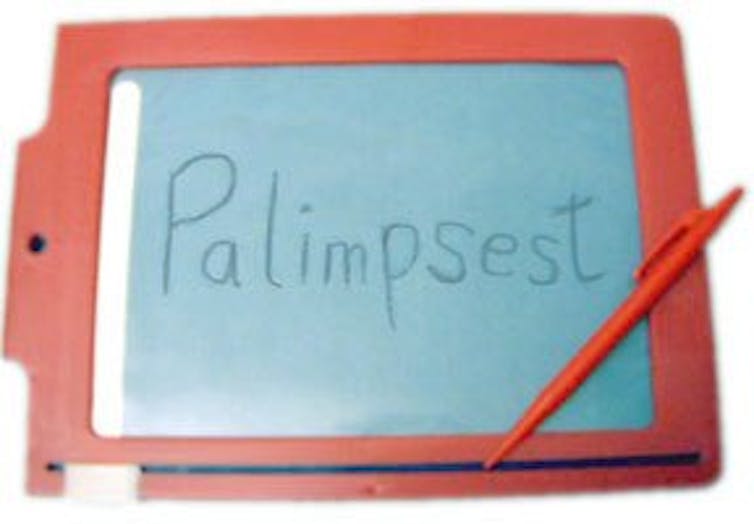Re: emails - should laugh and cry at the same thing?
- Written by Matthew Sharpe, Associate Professor in Philosophy, Deakin University
The great French philosopher Michel de Montaigne (1533-1592) has an essay “That we laugh and cry at the same thing.” It is one of his many Essays that revel in pointing out the manifold irrationalities of we humans, ‘the rational animals’.
Montaigne’s philosophical star is presently not on the ascendant. But this sceptical ironist and astute observer of all things human has a real claim to being one of the most influential of Western thinkers.
There is in fact scarcely a rule that a reader can think of that Montaigne doesn’t delight in producing exceptions for. That’s often the best bit.
It is therefore worthwhile to think, but hard to say what Montaigne would have thought about emails; these electronic prodigies, scarcely two decades old, which can already lay claim to moving most of the world and bringing down at least one prospective President.
I can only suppose that Montaigne would have suggested that, here as elsewhere, there are good reasons why we should laugh and cry at the same thing.
Genre bender
Some people have compared Montaigne’s Essays to the first blog. I’m not aware of anyone suggesting emails. A charming raconteur, Montaigne probably tells us more about himself and his foibles than any writer before him, and almost everyone before the advent of social media.
At least one of his essays is cast as a letter to a female friend. Emails are like letters too, in some ways, if it is a question of situating them in the history of forms of written culture.
We sometimes after all still address emails formally: “Dear …” and close them with a “yours sincerely”, “with best regards”, etc. Yet they are not quite letters, at least as anyone knew them before circa 2000 CE.
Sometimes people don’t address or sign emails at all, especially when they are on a hand-held device or in a rush. In some exchanges, again, you start formally and then end three or four “replies” later by dropping the pleasantries, before renewing them in a new chain.
Then there’s all the gradations in between formality and zero: “best, b” or just ‘- h" and, more and more, the automated signature.
There’s not usually then quite such a custom of formality in an email as in a letter. Yet emails on some subjects within organisations demand a formal mode of writing.
Someone recently was relating that some organisations now insist on “brand-sanctioned” language in employees’ emails, although I’m not sure Montaigne would credit it.
Nevertheless, often emails are riddled with grammatical errors and typological infelicities. Deciphering them at the other end is like reading a cryptic code.
It has always been possible to forward a letter you have received onwards to other recipients, even recipients who weren’t originally addressed. That was, admittedly, fairly unusual, outside of political contexts. But that is much easier than ever now. And it is possible, thinking of Montaigne, to imagine situations when this becomes more a matter of tears than of laughter.
So perhaps someone will accordingly say that, actually, it is not letters but postcards that emails more closely resemble. Anything written in an email is not private, like the old picture postcard.
Some wise voices thus suggest a “blackboard rule” (don’t write it down unless you could leave it on a blackboard). This implies near-perfect publicity. But mostly, when people speak or write for the public, they take care to get the grammar and spelling right.
Users sign in to email servers with a protected password, and many of their receipts for private transactions are now, more or less necessarily, linked to email accounts. So the idea that emails are the postmodern postcards doesn’t quite fit the bill either.
Are emails then unprecedented?
Some people keep all their written correspondence for many years. We should be grateful that figures like Goethe, Diderot or Voltaire made a habit of it.
But the emails of all we lesser mortals are automatically recorded and stored by the internet provider and sundry parties for up to seven years. Whereas even love can be passing, like Sigmund Freud’s unconscious, emails are forever.
Perhaps then the better model is the “mystic writing pad” that fascinated the same Sigmund Freud as a possible model for the mind.
These are the kinds of wax tablets that kids can write on by depressing a thin film, layered over said tablet, with a point. When the film is lifted, what was last written on the film is removed. A clean slate materialises.
But what was inscribed on the wax is recorded for as long as the wax lasts. A wax writing pad like that which fascinated Freud as a model for the mind.
A wax writing pad like that which fascinated Freud as a model for the mind.
Yet you can’t unsend or ‘lift away’ a sent email (there’s actually a line of email-circulated jokes about this sort of thing). Indeed, on this thought, human beings have never previously had the power, by clicking a single button marked “reply all”, to post a letter simultaneously to an entire circle of people who they didn’t mean to post it to.
That is another ‘affordance’ of emails that I think Montaigne would find both tragic and comic at the same time.
Inconvenient conveniences
But emails, truly, are very convenient. They are so convenient as to be practically unavoidable. Who needs to walk down a corridor or across a city block, let alone pick up a phone, when you can email, more immediately, and to the same effect?
—Except that it often is not “to the same effect”.
Emails have features that, truly, resemble a spoken conversation. Almost instantaneous exchanges are possible, and we’ve seen informality too. Yet emails are not quite conversations, any more than they are quite letters, postcards, or mystic writing pads.
For a start, emails are written. There is a timeless, vexing problem with writing, identified by the Greek philosopher Plato long ago. Written texts communicate. But they always communicate the same thing. And they don’t come with their own interpretation manual.
Moreover, written words can never convey all the unsaid dimensions of language, like intonation, eye contact, or body language.
So emails, like all writings, are famously prone to being misunderstood. In a way that would make Jacques Derrida laugh, they disseminate all sorts of unintended significations beyond the author’s best intentions.
Who has not heard stories of emails that have been taken the wrong way, like the proverbial joke in bad taste?
Lately, evidently realising Plato was on to something, some e-mailers have introduced pictorial emojis at the end of sentences to make their readers clear about their good intentions.
But a smiling emoji at the end of a sentence can look like protesting too much, to cite a near-contemporary of Montaigne’s.
True, at least with an email you can respond, send a follow-up to clarify, or reply to replies. This makes the situation not quite the same as that which Plato envisaged for deaf, dumb and repetitive writing. But Montaigne might point to other seeming inconveniences that attend emails, near neighbours to their conveniencies.
With the advent if the i-phone, emails have after all fast become like close friends or family members. You take them everywhere. Then again, they are also – like friends and family members, who you can’t ever quite leave behind.
Just two holiday button clicks of your ‘device’ away, you can find yourself in effect back in the workplace: the same workplace that just now you were dreaming of leaving behind this untroubled horizon, a couple of flights and weeks away.
Unless you turn the alerts off, emails will even buzz in your pocket. It is as if you were a surgeon on call, urgently needed to attend to the latest e-sale or list-advertisement from people you’ve never met.
 Michel de Montaigne as the first blogger.
Michel de Montaigne as the first blogger.
With that said, on the other end of the “too close-too far” spectrum, there is the agony of the unrequited email: comic from the outside, heartrending from the inside.
In the old days, a letter would take days or weeks to reach its addressee. You could calculate for the delay. This delay would also have to be doubled by the time needed for return post. That was peace of mind.
But emails bring with them an expectation of instant availability. So how soon should you send a “chaser” email if someone doesn’t respond? Is an hour, a day, a week, or two weeks too long? Or too short?
Then again, is it actually rude not to respond to an email? If we follow the comparison with a conversation, then yes. You can’t just not respond to someone without being rude. But if we follow the letter analogy, letters were always a more open affair. It’s another grey zone.
So how should you phrase the “chaser” email (read: “please reply, give me anything!”), let’s say two weeks later? Should you be serious or playful, cite uncertainty as to delivery or receipt, some fault of your own, or the possibility of some other mischance?
Whichever you choose, the chaser email might be the right time for an emoji with a smiling face or, obeying the law of opposites, an emoji with a thin wire of smoke curling out of its ears.
With all that said, the idea of sending an email with an “acknowledge receipt” seems to me too mistrustful. Policy recommends caution, but it also recommends discretion. When you acknowledge receipt in these cases, something of the liberty of the exchange is sent back with the acknowledgement.
And now there’s no excuse: the clock is ticking on your reply.
Lucretius’ law
So, what would Montaigne have made of emails? Somewhere he claims never to have been the best letter-writer, since his style was too open, humorous and unaffected.
Socratic irony aside, that alleged fact, and Montaigne’s endless stories and examples might have made him a quite extraordinary emailer to ‘cc’ in, whenever possible.
I think Montaigne would revel in the paradoxes and vexations with come with our e-enlightenment, as if anything human was likely to avoid them. Laughter is in order.
Then again, one of the Roman heroes whose words Montaigne had at his fingertips, the poet Lucretius already noted in his great poem On the Nature of Things (1st century BCE, just before Caesar and Christ) that every human technological advance is ambivalent.
Technical devices will never deliver us from inconveniences and ambiguities. Each novelty is likely to create its own, as it solves older problems. And every new affordance, at base, can be used for purposes of peace and war, creation and destruction, love and hatred, envy and gratitude: indeed, per Montaigne, lamentation as well as laughter.
I imagine a Montaigne emoji written into some enlightened email program of the future. It would warn users, with a gentle smile and directive finger: always be very careful before you press “send”, and just for the moment, leave “reply all” well alone.
Authors: Matthew Sharpe, Associate Professor in Philosophy, Deakin University
Read more http://theconversation.com/re-emails-should-laugh-and-cry-at-the-same-thing-83593





